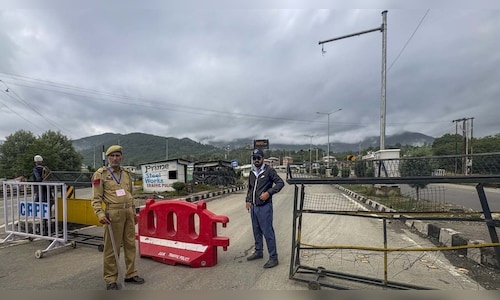Chairing a meeting, Prabhat brought senior officers from the Indian Army, Central Armed Police Forces (CAPFs), and intelligence agencies together to assess preparedness and coordination during the yatra. The session included participation from the Army’s 15 Corps, led by General Officer Commanding Lt Gen Prashant Srivastava, as well as senior officials from the Police, Criminal Investigation Department (CID), Border Security Force (BSF), Central Reserve Police Force (CRPF), Sashastra Seema Bal (SSB), Indo-Tibetan Border Police (ITBP), Central Industrial Security Force (CISF), Traffic Police, and Railway Police.
According to a police spokesperson, the meeting focused on current security challenges, especially in light of the ongoing pilgrimage, which has seen increased footfall amid lingering concerns over cross-border threats. A detailed threat assessment and operational review were carried out, with special attention to multi-tiered security arrangements in high-sensitivity zones.
Also read | Baba Budha Amarnath Yatra: Preparations underway in Poonch; security beefed up for 13-day event
The DGP praised the collective efforts of the armed forces and civil police, particularly their success in maintaining an effective counter-infiltration grid and safeguarding pilgrim convoys. He commended the joint operational synergy between military and civilian security agencies in volatile regions, which has contributed to an incident-free environment so far.
“The DGP emphasised the importance of real-time coordination and seamless inter-agency communication to address any emerging threats swiftly,” the spokesperson said, adding that Prabhat urged all units to remain vigilant and adopt adaptive strategies in response to evolving security dynamics.
Also read | Haryana to transform Jyotisar into Mahabharata-themed religious destination: CM Saini
Security in Jammu and Kashmir has remained on high alert since 22 April, when 26 civilians — mostly tourists — were killed in a terror attack near Pahalgam. The incident, one of the deadliest in the region in recent years, triggered nationwide outrage and led to Operation Sindoor — a short, high-intensity military campaign launched by India targeting militant infrastructure across the Line of Control.
Although a ceasefire was subsequently agreed upon at Pakistan’s request, tensions remain elevated. In a related move, India and Pakistan imposed reciprocal airspace restrictions in late April, with Pakistan first banning Indian-operated aircraft on 24 April and India responding with its own ban on Pakistani flights from 30 April. These restrictions have since been extended multiple times, reflecting the ongoing geopolitical strain.
The Amarnath Yatra, which traverses some of the most volatile parts of South Kashmir, has always been a high-security affair. This year’s pilgrimage is particularly sensitive given the backdrop of the Pahalgam attack, making inter-agency coordination and intelligence-sharing vital for pre-empting threats.






